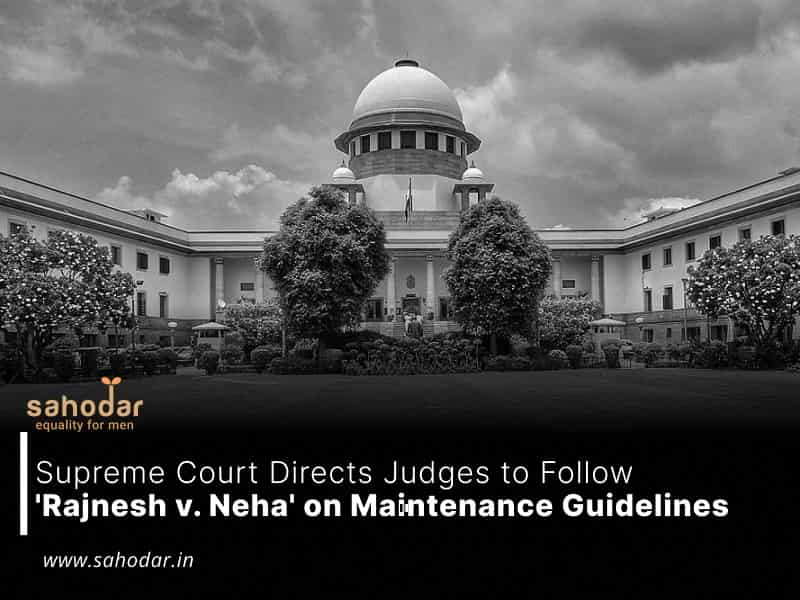On November 6, 2023, the Supreme Court, noting non-compliance with the articulated guidelines on maintenance elucidated in the case of Rajnesh v. Neha and Another (2021) 2 SCC 32, particularly within the realm of matrimonial litigation, issued a directive. The Apex Court mandated the re-circulation of the judgment containing comprehensive guidelines for the expeditious adjudication of cases involving the award of maintenance. This directive pertains to dissemination among judicial officers across all High Courts in the jurisdiction.
The aforementioned directive emanated from a bench presided over by Justice Vikram Nath and Rajesh Bindal during the consideration of an appeal contesting a High Court order characterized as ‘cryptic.’ The impugned order had substantively altered a well-reasoned decision of the Family Court, resulting in the reduction of the monthly maintenance obligation imposed upon the father in favor of his minor daughter, diminishing it from Rs. 20,000 to Rs. 7,000.
“Considering the facts of the case in hand and the other similar cases coming across before this Court not adhering to the guidelines given in Rajnesh’s case (supra), we deem it appropriate to direct the Secretary General of this Court to re-circulate the aforesaid judgment not only to all the Judicial Officers through the High Courts concerned but also to the National Judicial Academy and the State Judicial Academies, to be taken note of during the training programmes as well. Ordered accordingly” the Court ordered.
In the seminal 2020 judgment of Rajnesh v. Neha, the Supreme Court delineated comprehensive guidelines pertaining to the adjudication of maintenance matters within matrimonial contexts. These guidelines encompassed procedural facets, criteria for the quantification of maintenance, stipulations regarding the commencement of maintenance awards, modalities for the enforcement of maintenance orders, and the imposition of a standardized format for the submission of an Affidavit of Disclosure of Assets and Liabilities by both parties involved.
Contrarily, in the present litigation, the Court observed a manifest non-compliance with these established guidelines. It underscored the recurrent nature of such non-adherence, positing that this trend contributes to an escalation of legal disputes in higher appellate courts.
“The case in hand is not in isolation. Even after pronouncement of the aforesaid judgment, this Court is still coming across number of cases decided by the courts below fixing maintenance, either interim or final, without their being any affidavit on record filed by the parties. Apparently, the officers concerned have failed to take notice of the guidelines issued by this Court for expeditious disposal of cases involving grant of maintenance. Comprehensive guidelines were issued pertaining to overlapping jurisdiction among courts when concurrent remedies for grant of maintenance are available under the Special Marriage Act, 1954, Section 125 Cr.P.C., the Protection of Women from Domestic Violence Act, 2005, Hindu Marriage Act, 1955 and Hindu Adoptions and Maintenance Act, 1956, and criteria for determining quantum of maintenance, date from which maintenance is to be awarded, enforcement of orders of maintenance including fixing payment of interim maintenance. As a result, the litigation which should close at the trial level is taken up to this Court and the parties are forced to litigate,” the Apex Court said.
In the current proceedings, the Court noted that the paramount consideration is the welfare of the child in such cases. The Court observed that the High Court, without providing comprehensive justification, decreased the maintenance sum from ₹20,000/- to ₹7,500/- per month. This decision was based on the father’s previous business involvement and his current financial difficulties. The Apex Court further noted that this modification occurred despite the Family Court’s detailed reasoning for the original maintenance order.
“The impugned order passed by the High Court is cryptic and is bereft of reasons” the Apex Court said, while remitting the matter back to the High Court for fresh consideration.

